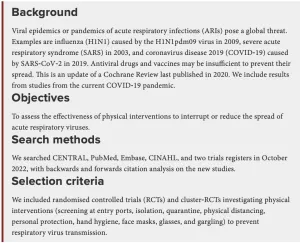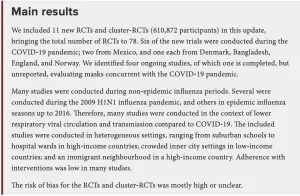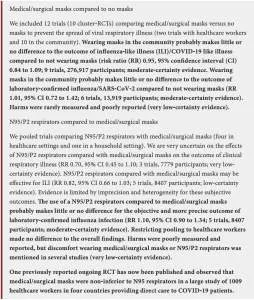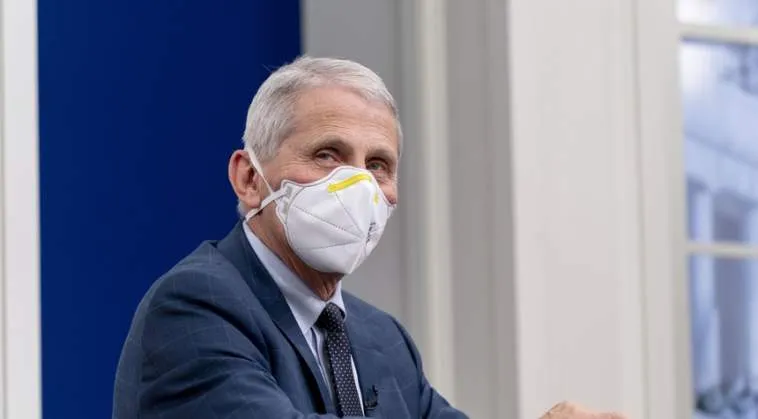(Hot Air) Cochrane Library, an extremely well-regarded service that aggregates a database of high-quality medical studies and analyzes them, has published a new analysis of randomized controlled trials on physical interventions designed to reduce the spread of respiratory viruses.
Physical interventions they studied were the use of surgical masks, N95 masks, and hand washing. They hoped to review other interventions such as the use of PPE such as face shields and similar equipment, as well as travel restrictions, but no RCTs exist on these interventions.
Did nobody think to do any scientific studies on these common interventions? In fact, the Cochrane authors themselves expressed frustration at the incuriosity of scientists on matters of immediate interest and vital importance, as have some public health figures such as Vinay Prasad. Where are the RCTs to back up all these mandates and restrictions? RCTs are the gold standard in science.
In any case, the review of the (too few) studies reveals what most of us know to be the truth: masks don’t work; even N95 masks don’t work. The latter is true probably because compliance and proper use are too burdensome over time to maintain, although that is speculation. Handwashing makes a modest difference in the frequency of infections.

This is precisely what the Cochrane database is designed to do. By collecting the extant medical research into a database you can analyze the results of multiple studies in order to tease out what the collective data can tell us.

That last point about adherence is vital to acknowledge. Human beings are only human, so even if the best-designed interventions could theoretically work–which is unlikely with surgical masks and not especially likely with N95s even used by medical professionals–chances are good that adherence to protocols will be low.
A couple of examples: how many people have not reused a mask? Stuffed it in their pocket and brought it out again to wear it somewhere when it is required? Almost everybody. Probably everybody. That reused mask is likely worse than useless. If it has virus particles on it you just handled it, probably deposited virus on the inside, and now you are breathing them in.
N95s? What percent of the time are they used as intended? Almost never. The seal must be perfect to prevent the infiltration of the virus, and without long preparation in nearly sterile conditions, the seal will be bad. You can check out the CDC instructions for yourself. That’s why studies show no appreciable difference between N95 effectiveness and surgical mask effectiveness, and that neither is effective.
Remember: the intervention only has to fail once to be a complete failure. And it will fail everybody at some point. Here is a good discussion on why N95s will over time do nothing.







